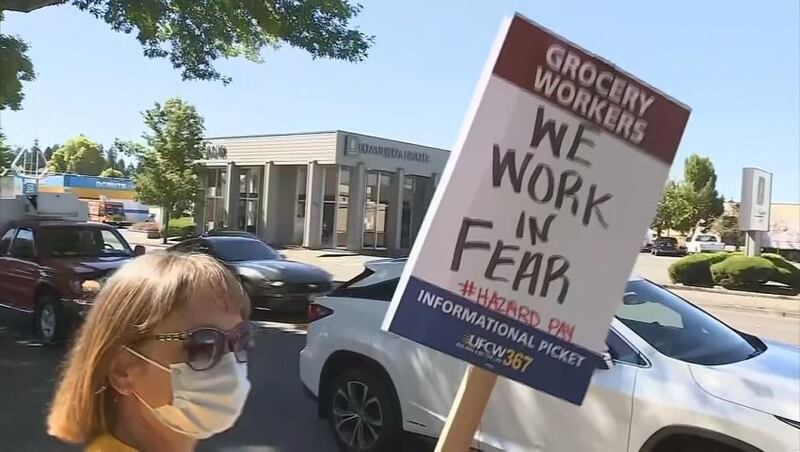Pretty much everyone agrees health care workers and emergency responders should be vaccinated first against COVID-19.
But who should come next?
There’s an intense lobbying effort among businesses and unions to put their essential workers high in line.
Uber is asking Gov. Jay Inslee for Phase 1b vaccine access for the nearly 35,000 people in Washington who earned money on the company’s platform during the pandemic.
In a letter, Uber CEO Dara Khosrowshahi wrote, “I encourage you to recognize the essential nature of their work.”
“I think it makes a whole lot of sense,” said Michael Wolfe, of Drive Forward, a group representing food delivery and rideshare drivers.
“Our members have been out there doing the work that needed to be done so we can get through and survive this pandemic,” Wolfe said.
Other companies and business associations with essential workers are lobbying both the state and federal governments.
The airline industry is asking for early vaccine access, as are associations representing the funeral industry, banks, trash collection companies and broadcasters.
A Centers for Disease Control and Prevention database includes a letter from the Association of Zoos and Aquariums citing endangered species that need care.
“That protection requires trained professionals on site for essential work that cannot be done remotely,” the letter reads.
UFCW21, a union representing 25,000 grocery workers, is also asking for prioritized vaccine access.
“We’re trying to push the levers in all places to make sure essential workers are protected and get access to the vaccine,” said Tom Geiger, of UFCW21.
“At the same time, we don’t want to have one essential worker having to compete against another essential worker for a vaccine when I think the federal government needs to do more to maximize the total number of vaccines that are available in the first place,” Geiger said.
State health officials said they are receiving between 50 and 100 emails or letters every day, requesting to move up in the vaccine queue.
“In each of these letters, there are strong arguments as to why they should be in the prioritization, so that goes back to the hard decisions we have to make when we have limited doses,” said Sheanne Allen, of the Washington Department of Health.
Cox Media Group








